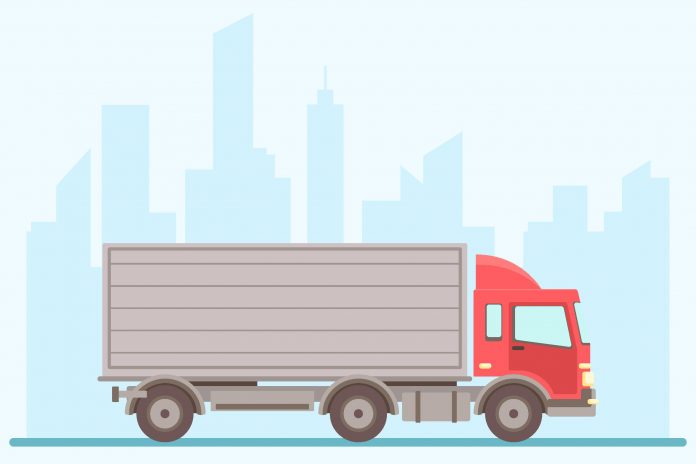Your business runs on wheels, and every journey your vehicle takes carries both opportunity and risk. That’s why your protection plan should move just as smartly. Whether you own one vehicle or manage a fleet, commercial vehicle insurance helps safeguard your operations.
Let’s explore what it covers and how the right strategy can keep your business on track.
Understanding Commercial Vehicle Insurance
Commercial vehicle insurance is a policy designed to protect vehicles used for business purposes. Whether you’re operating a single delivery van or a fleet of trucks, this insurance ensures that your business remains resilient against potential risks.
Benefits of Commercial Vehicle Insurance
1. Comprehensive Protection
- Offers wide-ranging cover against damages caused by accidents, theft, fire, and natural calamities.
- It includes repair or replacement costs to help minimise business disruptions. This ensures your vehicle stays road-ready without affecting daily operations.
2. Third-Party Liability
- Protects your business from legal and financial liabilities arising from third-party injury or property damage.
- It’s a mandatory cover that provides legal peace of mind while driving commercially. The insurer handles claims and compensations, reducing your burden.
What’s Covered in Commercial Vehicle Insurance?
When it comes to keeping your business vehicles protected, knowing exactly what your policy includes is important. Whether you’re insuring a single truck or multiple vehicles, a well-rounded commercial truck insurance plan offers much more than just basic protection. Here’s a quick look at what’s covered under a commercial vehicle insurance policy:
| Coverage | Details |
| Accidents | Covers repair or replacement costs if your vehicle is damaged in an accident. Minimises downtime and ensures swift recovery. |
| Theft | Offers compensation if your vehicle is stolen or cannot be recovered. Helps you reinvest in a replacement vehicle. |
| Fire | Covers damage caused by fire, explosion, or self-ignition, whether stationary or moving. |
| Natural Disasters | Financial cover for damages due to floods, earthquakes, storms, and other natural events. |
| Personal Accident | Provides compensation in case of injury or death of the driver during an accident. |
| Third-Party Losses | Covers legal and financial liabilities for third-party injury or property damage caused by your vehicle. |
| Towing Disabled Vehicles | Protects against damage caused while towing another vehicle. Keeps you covered during support operations. |
Why Does Your Business Need Commercial Vehicle Insurance?
Operating without adequate insurance can expose your business to significant risks. Here’s why investing in commercial vehicle insurance is essential:
1. Financial Security
- Offers protection against high repair or replacement costs due to accidents, theft, or other damages.
- Reduces out-of-pocket expenses that can impact your operating budget.
- Allows you to allocate funds where they’re most needed.
2. Business Continuity
- Covers unexpected events so your vehicles can return to service quickly.
- Reduces downtime that could disrupt delivery schedules or client commitments.
- Keeps your operations steady, even in the face of setbacks.
3. Asset Value Protection
- Your commercial vehicles are valuable business assets. Insurance ensures that any damage, depreciation due to accidents, or loss doesn’t affect your overall asset value.
- This helps maintain a strong balance sheet and supports long-term business growth.
4. Customised Coverage for Business Needs
- Commercial vehicle insurance can be tailored to your specific operations whether it’s cargo protection, driver cover, or multi-vehicle policies.
- This flexibility means your unique business needs are always met, without paying for coverage you don’t need.
Factors Affecting Commercial Vehicle Insurance Premiums
Several factors play a role in determining the premium for your commercial vehicle insurance. Understanding these can help you make cost-effective choices while ensuring adequate protection:
1. Vehicle Type and Usage
- The kind of vehicle you operate, whether it’s a light delivery van or a heavy-duty truck, has a direct impact on your premium.
- Vehicles used for long-distance or frequent operations tend to attract higher premiums due to increased risk exposure.
2. Geographical Location
- Where your vehicle is registered and primarily operates matters.
- Areas with high traffic density, accident rates, or theft incidents often lead to higher premiums.
- Urban centres usually see more claims than rural or semi-urban areas.
- Areas with high traffic density, accident rates, or theft incidents often lead to higher premiums.
- Urban centres usually see more claims than rural or semi-urban areas.
3. Driver’s Experience
- A seasoned, trained driver with a clean driving record can significantly reduce your premium.
- Insurance providers assess the risk based on the likelihood of safe driving behaviour.
- Businesses with professional drivers may qualify for lower rates.
4. Claim History
- A clean claims record reflects lower risk and may make you eligible for a No Claim Bonus (NCB).
- Regular claims, on the other hand, suggest higher risk and can increase premiums.
- Maintaining proper vehicle care and cautious driving helps keep claims low.
5. Add-On Covers
- Optional add-ons like zero depreciation, roadside assistance, and engine protection enhance coverage but also raise the premium.
- These add-ons offer peace of mind, especially for businesses that rely on time-sensitive deliveries.
- Choose only the add-ons that align with your vehicle’s use to balance cost and value.
Your commercial vehicles keep your business moving. Insurance does more than just meet legal norms; it acts as a safety net against unexpected events. The right policy helps you manage accidents, delays, and damages with minimal disruption. With tailored coverage, you can focus on growth while staying protected on the road.





